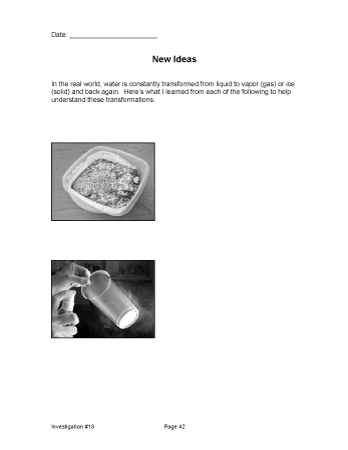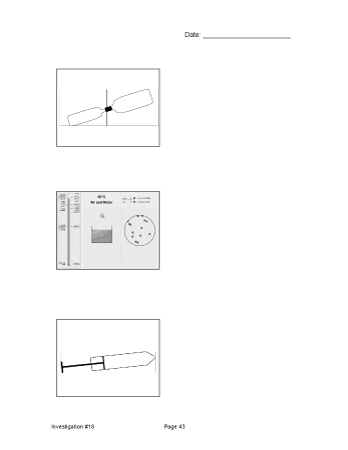How have our understandings changed?
Plan Investigation 18
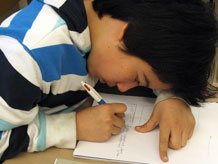
In this final session, students reflect on how their understandings have grown and changed during the curriculum unit, and how they can apply their new understandings to water, air, and transformations of matter in the real world.
This opportunity for reflection is structured by having students focus on five models or investigations from the curriculum: the mini-lake, the spray mister, the 2-bottle system, the Particle Magnifier, and a syringe.
By the end of this investigation students will have had an opportunity to apply the new understandings they have developed about water, air, and the transformation of matter to real world situations.
Learning Goals
- Understand that models help to explain scientific phenomena
| Sequence of experiences | ||
|---|---|---|
| 1. Introduction | All Class | 5 Mins |
| 2. Reflection | Small Groups / Individual | 20 Mins |
| 3. Discussion and wrap up | All Class | 20 Mins |
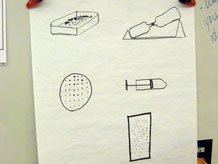
Materials and Preparation
For the class:
- Prepare a classroom poster with copies of the five simple sketches found in the Science Notebooks: the mini-lake, the spray mister, the 2-bottle system, the Particle magnifier, and a syringe.
1. Introduction
This is the final session of this curriculum unit. Since students first set up their mini-lakes in Investigation 1, they have explored water, ice, and gases including water vapor. They have used a physical model (mini-lake) and conceptual model (particle model) to consider how water is transformed, from a solid to a liquid, and from a liquid to a gas (water vapor), and what changed and what remained the same across these transformations. Their notebooks are filled with data, ideas, questions, predictions, and explanations.
Today students reflect on what new understandings they have as a result of this work. How have their ideas changed? What questions do they still have?
2. Reflection
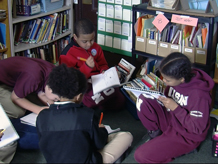
On the [New Ideas] page in their Science Notebooks, students will find 5 images: the mini-lake, the spray mister, the 2-bottle system, the Particle Magnifier, and a syringe. Each image represents one or more investigations of transformations of water.
In the real world, water is constantly transformed from liquid to vapor (gas) or solid and back again. What did you learn from your work with the mini-lake, the spray mister, the 2-bottle system, the Particle Magnifier, and the syringes to help you understand the transformation of water?
Ask students to look through their Science notebooks and discuss the question in their group. They should then turn to the [New Ideas] page and write their responses next to each of the five images. They should write any questions they still have, or things they find confusing.
3. Discussion and wrap up
Purpose of the discussion
The purpose of this discussion is to bring ideas together and connect them to real world phenomena.
Engage students in the focus question
In the real world, water is constantly transformed from liquid to vapor (gas) or solid and back again. What did you learn from your work with the mini-lake, the spray mister, the 2-bottle system, the Particle Magnifier, and the syringes to help you understand the transformation of water?
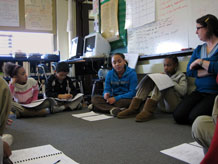
Refer to the poster with the five drawings and repeat the question that is the focus of this discussion:
- Focus the discussion on just one image at a time.
- Encourage students to use their notebook entries.
- Remind students that, as they make claims about new understandings, they should describe the evidence that supports their claim.
As time permits, ask students if they are thinking differently now about any of these questions:
- Why does a puddle disappear?
- Why do we often see water drops on the outside of a glass of water in the summer?
- Why do we see dew on the grass in the early morning and it's gone by noon?
- If the water level in a lake stays the same, does that mean that no water is evaporating?
Summarize the discussion and recap the investigation
This investigation provided students with an opportunity to bring together all of their experiences and learning about transformations of water, and to reflect on the ways their ideas and understanding have grown and changed. The last set of questions — about puddles, lakes, water drops on cold glass of water on a summer's day, and early morning dew — is a reminder that they now have a far deeper understanding of science phenomena that they experience every single day.


